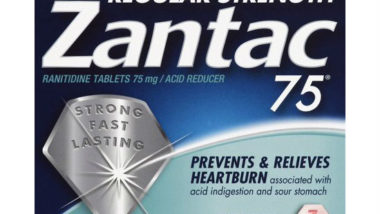 The long-standing daily use of PPI and kidney problems are thought to be closely linked. This class of medication is used to treat chronic heartburn and acid reflux problems by slowing the chemical process which causes the stomach to produce acid.
The long-standing daily use of PPI and kidney problems are thought to be closely linked. This class of medication is used to treat chronic heartburn and acid reflux problems by slowing the chemical process which causes the stomach to produce acid.
As indicated by the CBS report and attributed to the Journal of the American Medical Association (JAMA), long-term use of common over-the-counter PPIs—also available with a prescription–has been known to increase the occurrence of chronic kidney disease (CKD) on a risk scale of between 20 to 50 percent. The measurement of PPI and kidney problems is compared to non-users.
What Acid Reflux Treatments Should Pose a Concern?
The active ingredients in both brand names and generic brands to be concerned with are omeprazole, lansoprazole, rabeprozole, pantoprozole, and esomeprozole. Omeprazole is sold as Prilosec and Zegerid.
Lansoprazole is sold as Prevacid. Rabeprozole is sold as Aciphex. Pantoprazole is sold as Protonix. Esomeprozole is sold as Nexium.
PPI and Kidney Problems and Other Side Effects
According to a recent article posted by Very Well Health from October 2018, PPI and kidney problems are connected, but the increase in risk is small. The article says that the risk amounts to four point increase over the general population when taken 10 years or more, while also acknowledging that this side effect and others are problematic and may be related to proton pump inhibitors‘ mechanism of action in the body.
PPIs don’t magically know which area of the body to affect. They work to turn off acid pumps in the stomach, but also throughout the whole of the anatomy. In each cell, there is a part known as a lysosome that needs acid to clear metabolic waste away. Without the means to clear itself, cells can cease to function as well and age prematurely.
In addition to the kidney problems related to PPIs, they have been linked to a 13 percent uptick in one’s chance of getting dementia if used over a seven-year period or more. PPI use can also disrupt the body’s ability to absorb calcium. This adverse effect can lead to bone weakness and contribute to osteoporosis and skeletal fractures.
FDA Advisement and Alternative Treatments
In 2011, the U.S. Food and Drug Administration (FDA) sent out warnings concerning the long-term use of PPIs. It said use of such products should be limited to episodic periods lasting no more than 14 days up to three times per year.
It should also be mentioned that while PPIs have become so popular that treatment alternatives known as H2 blockers have been largely supplanted. They are still commercially available and are sold under the brand names of Pepcid, Tagamet, and Axid. Then there is Tums or Rolaids—products which break down acid but don’t prevent the body from producing it.
ATTORNEY ADVERTISING
Top Class Actions is a Proud Member of the American Bar Association
LEGAL INFORMATION IS NOT LEGAL ADVICE
Top Class Actions Legal Statement
©2008 – 2026 Top Class Actions® LLC
Various Trademarks held by their respective owners
This website is not intended for viewing or usage by European Union citizens.
E-mail any problems with this form to:
[email protected].
Oops! We could not locate your form.












